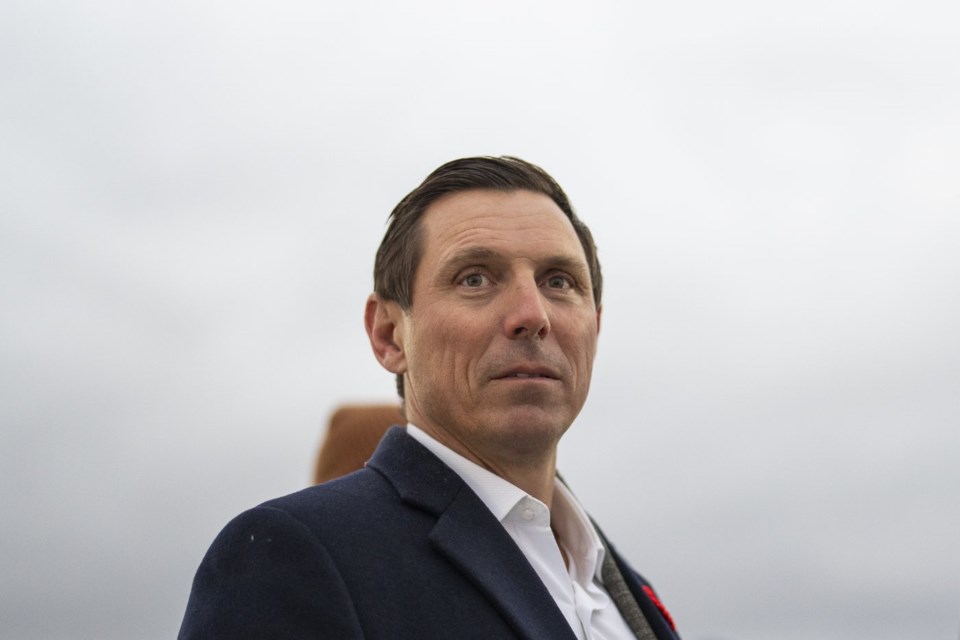BRAMPTON, Ont. — City council in Brampton, Ont., unanimously approved a bylaw Wednesday to restrict protest near places of worship following a series of violent demonstrations outside a Hindu temple earlier this month, a move the mayor says aims to "encourage harmony" amid escalating tensions.
The bylaw states that no person “shall organize or participate in a nuisance demonstration within one hundred metres” of a place of worship, and it is "not intended" to prohibit peaceful protest.
The motion was brought to council by Mayor Patrick Brown following two days of violent protests outside the Hindu Sabha Mandir, where hundreds of demonstrators gathered weeks ago. Social media posts at the time appeared to show protesters clashing, with some holding banners in support of a separate Sikh country called Khalistan and others holding India’s national flag.
The protests led to multiple arrests and the suspension of a Peel police officer. They also prompted statements from several high-profile officials – including the prime ministers of Canada and India – condemning the violence following months of diplomatic tensions between the two countries.
In a phone interview Wednesday, Brown called the bylaw "an additional tool" to ensure that no one fears going to their place of worship. The Criminal Code already includes offences related to willful disruption of religious gatherings.
"We want to make sure whether you go to a mandir, or a gurdwara, mosque, synagogue or church, that everyone can pray free from harassment and intimidation," Brown said, noting that the bylaw does not apply if the place of worship is rented to a third party.
Some experts specializing in freedom of expression have voiced concern about the measure.
Anaïs Bussières McNicoll, director of the fundamental freedoms program at the Canadian Civil Liberties Association, criticized the bylaw in a letter to Brampton city council earlier this week, calling its wording “vague, subjective and overly broad.”
“Prohibiting peaceful and otherwise lawful protests near specific locations because of their content would severely infringe freedom of expression and the right to protest peacefully” she wrote.
“We urge you to refrain from shrinking our civic space unduly and unfairly.”
Brown said he believes the CCLA "didn't know the particulars" of Brampton's bylaw, saying that it specifically protects the right to pray.
"We believe our bylaw is balanced and meets all legal requirements," he said.
James Turk, director of the Centre for Free Expression at Toronto Metropolitan University, told The Canadian Press earlier this month that the bylaw could deter people from demonstrating lawfully.
“The only effect of what they're doing would be to further restrict speech by those who are protesting, as well as to chill others who may want to protest," Turk said at the time.
But Brown disagreed with that concern and said residents are still free to exercise their rights.
"I think there are ample places to protest. We're saying you've got to protest anywhere in the city, just not outside a prayer room," he said, adding that local religious leaders have been "overwhelmingly supportive" of the bylaw.
Other Ontario cities have considered similar bylaws. In the neighbouring municipality of Vaughan, Ont., city council unanimously approved a bylaw in June to prohibit "organizing or participating in a nuisance demonstration" within 100 metres of "vulnerable social infrastructure" such as places of worship, schools, child-care centres or hospitals.
In Mississauga and Ottawa, city councils have recently passed motions directing staff to study the feasibility of such a bylaw.
For Brown, the purpose of the bylaw is to ensure that ongoing tensions in some Brampton communities don't prevent people from going to their place of worship.
"I think the goal is this is just another tool in the tool kit to encourage harmony, to encourage the protection of religious freedom," he said.
This report by The Canadian Press was first published Nov. 20, 2024.
Rianna Lim, The Canadian Press



